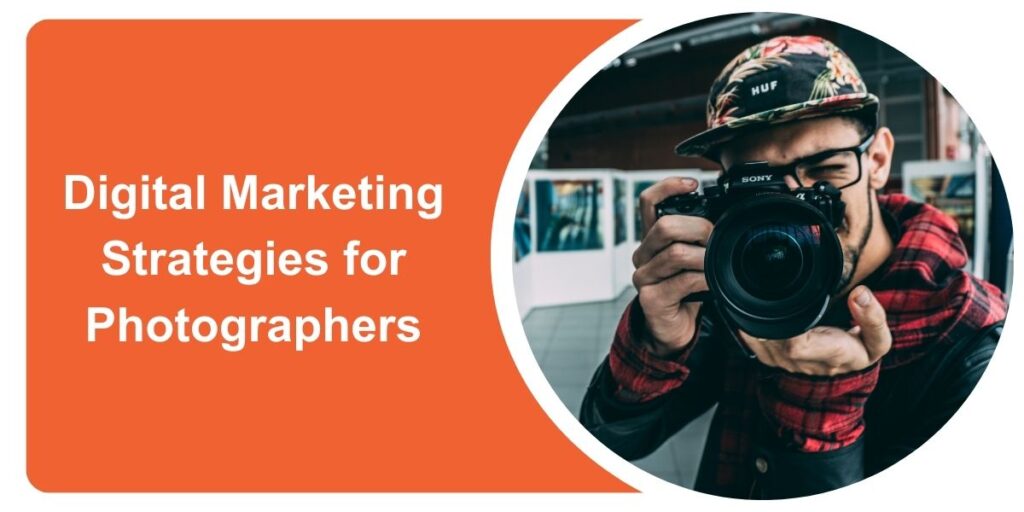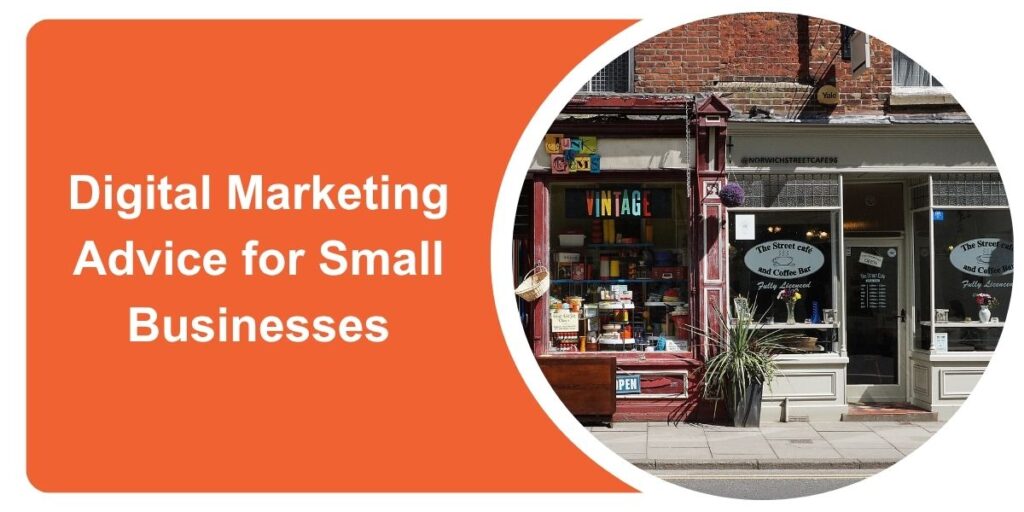
As a digital marketer who has worked closely with photographers and creative businesses, I know that a strong portfolio alone is not enough to keep clients coming in consistently. The photographers who thrive today are the ones who understand how to market themselves effectively online.
In this guide, I am sharing digital marketing strategies that I have personally seen transform photography businesses. These strategies are practical, proven, and focused on helping photographers stand out, attract clients, and grow with confidence.
Why Digital Marketing Matters for Modern Photographers
Most people begin their search for a photographer online. Whether it is for a wedding, a newborn session, or a corporate headshot, clients use Google, Instagram, and review sites before reaching out. This means visibility is not optional, it is essential.
Digital marketing makes your work discoverable, builds trust before you even speak to a client, and converts that visibility into bookings. Without it, even the most talented photographers risk being overlooked.
Building a Strong Online Presence
Creating a Photography Website That Converts
Your website is the foundation of your online presence. To make it effective, focus on:
- Fast loading speeds that keep visitors from leaving.
- A clean, mobile-first design that showcases your best work.
- Clear calls to action such as Book a Session or Check Availability.
- Simple forms that make it easy to get in touch.
One overlooked factor is the choice of domain. I recommend using a localized domain extension such as .uk, .ca, or .ae if you primarily serve clients in that region. A localized domain helps you appear more relevant in local search results and reassures clients that you are based in their area.
Optimizing Your Portfolio for SEO
Rename your images with descriptive keywords, add keyword-focused descriptions for galleries, and use structured URLs such as yourdomain.com/portrait-photography. These steps make your portfolio easier for search engines to understand and rank.
Leveraging Blogging to Attract Organic Traffic
A blog is one of the most underutilized tools photographers have. Publishing guides like Best Engagement Photo Locations in London or How to Prepare for a Family Shoot brings in organic traffic. Clients who find these articles already see you as an expert before contacting you.
Social Media Strategies to Showcase Your Work
Choosing the Right Platforms for Your Niche
Different photography niches perform better on different platforms. Instagram is essential for most photographers, Pinterest drives strong traffic for weddings and lifestyle shoots, LinkedIn works well for commercial photographers, and TikTok can be useful for behind-the-scenes storytelling.
Creating Engaging Visual Content and Captions
Your images will catch attention, but it is captions that create engagement. Share context, tell a story, or ask questions to encourage comments and interaction.
Using Hashtags and Geotags to Expand Reach
A smart mix of niche hashtags (#newbornphotographer) and local ones (#torontophotographer) helps potential clients find your work. Geotags add another layer of local visibility.
Collaborating with Influencers and Local Creatives
Networking with makeup artists, wedding planners, and venues creates natural cross-promotion opportunities. A styled shoot shared by all participants can reach thousands of new people.
Your Instagram profile itself should be optimized like a website. Keep it public, use the word photographer in your username or bio title, and include your location. For example, londonweddingphotographer. This not only helps clients understand your services instantly but also improves your chances of showing up in search engines.

SEO for Photographers: Get Found on Google
Keyword Research for Photography Niches
Tools like Google Keyword Planner or Ahrefs help you discover exactly what potential clients are typing into search engines. Phrases such as affordable headshot photographer in Boston or wedding photographer in Dubai can be valuable targets.
On-Page SEO Techniques for Galleries and Posts
Make use of keyword-rich headings, descriptive meta descriptions, and strong internal linking between service pages and blog posts. These signals tell search engines what your site is about.
Image Optimization and Alt Text Best Practices
Compress images to improve speed and write descriptive alt text. For example, instead of IMG_1234.jpg, use Bride walking down the aisle at Central Park wedding.
Local SEO for Photographers and Studio Listings
Claim and optimize your Google Business Profile. Upload photos regularly, update your business hours, and actively collect reviews. A well-optimized profile often brings more leads than a website.
Email Marketing to Nurture Leads and Clients
Building a Targeted Email List
Offer resources such as Tips for Perfect Engagement Photos to encourage sign-ups. Add all inquiries, bookings, and social media leads to your email list.
Crafting Campaigns That Drive Bookings
Share seasonal promotions, preparation tips, and client spotlights. These emails keep you visible and encourage both new bookings and repeat clients.
Using Automation to Save Time and Stay Connected
Automation allows you to send reminders, thank-you notes, and follow-ups without extra effort. This keeps communication consistent while freeing up your time.
Paid Advertising to Amplify Your Reach
When to Use Facebook and Instagram Ads
Ads are most effective when promoting seasonal offers, targeting engaged couples, or advertising mini-sessions.
Targeting Your Ideal Photography Clients
Refine your targeting by location, age, and interests. For example, new parents in your city or couples who recently got engaged.
Setting a Budget and Tracking ROI
Start with a small budget, measure conversions, and scale campaigns that deliver results. Always track leads and bookings, not just clicks.
Building Trust Through Reviews and Testimonials
Encouraging Clients to Leave Reviews
Send a request for reviews after delivering final photos. Providing direct links makes it simple for clients to leave feedback.
Showcasing Testimonials Strategically on Your Website
Display reviews alongside your galleries, booking pages, and homepage. Pairing testimonials with relevant images adds authenticity.
Measuring Success and Refining Your Strategy
Tools to Track Website and Social Performance
Use Google Analytics to track website visitors and conversions, Google Search Console to monitor SEO performance, and Meta Insights for social engagement.
Understanding Metrics That Matter to Photographers
Track inquiries, bookings, and conversion rates. Social likes and impressions are useful but do not directly measure business growth.
Tweaking Strategies Based on Data and Trends
Adjust your strategies based on performance. If blog posts drive traffic but no leads, refine your calls to action. If social content engagement declines, test new formats like Reels or carousel posts.
FAQ
Q1: What is the most effective digital marketing strategy for photographers?
A mix of SEO, social media, and email marketing consistently delivers results. Using a localized domain extension also helps photographers rank better locally.
Q2: How can photographers use SEO to attract more clients?
By targeting location-based keywords, optimizing images, and publishing blog content that answers client questions.
Q3: Which social media platform is best for promoting photography services?
Instagram is the strongest option, but Pinterest and LinkedIn are also powerful depending on your niche.
Q4: How often should photographers send marketing emails?
One or two times per month is usually enough to stay relevant without overwhelming your audience.
Q5: What is the best way to get photography clients from Google?
Local SEO works best: optimize your website, use a localized domain extension, and collect Google reviews.
Q6: Are paid ads worth it for freelance photographers?
Yes, especially for targeted local campaigns such as wedding or seasonal mini-session promotions.
Q7: How can local photographers rank higher in Google Maps results?
Keep your Google Business Profile active, upload fresh photos, and collect verified reviews from clients.
Q8: What type of blog content should photographers publish for SEO?
Location guides, preparation tips, and client stories all attract organic traffic and position you as an expert.
Q9: How do I market my photography business on a small budget?
Focus on SEO, Instagram optimization, and email marketing. These require time but little financial investment.
Q10: Should photographers use TikTok or Instagram for marketing?
Instagram is essential for portfolios and client discovery, while TikTok can be useful for reach if your target audience is active there.

I’m a certified digital marketing expert with over 9 years of experience helping businesses grow through SEO, PPC, and content marketing. I focus on creating data-driven strategies that deliver measurable results and long-term growth.


